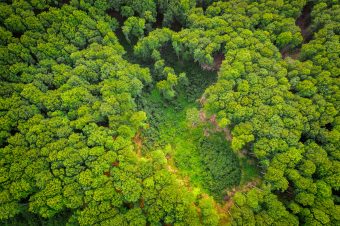
Amazonia hosts the Earth’s largest tropical forests and has been shown to be an important carbon sink. This carbon sink seems to be in decline, however, as a result of factors such as deforestation and climate change, according to a new paper published in Nature.
The study was led by Lucia Gatti, Group Leader, Brazil’s National Institute of Space Research /Center of Earth System Science and a member of the steering committee for the Integrated Global Greenhouse Gas Information System spearheaded by WMO.
The authors investigated Amazonia’s carbon budget and the main drivers responsible for its change into a carbon source. The group used observational based approach to evaluated the ecosystem carbon fluxes evaluation and performed 590 aircraft vertical profiling measurements of lower-tropospheric concentrations of carbon dioxide and carbon monoxide at four sites in Amazonia from 2010 to 2018.
They found that total carbon emissions are greater in eastern Amazonia than in the western part because this part experiences stronger increase in dry-season temperature and reduced precipitation. Southeastern Amazonia, in particular, acts as a net carbon source (total carbon flux minus fire emissions) to the atmosphere.
“Over the past 40 years, eastern Amazonia has been subjected to more deforestation, warming and moisture stress than the western part, especially during the dry season, with the southeast experiencing the strongest trends,” said the study.
More:
“We explore the effect of climate change and deforestation trends on carbon emissions at our study sites, and find that the intensification of the dry season and an increase in deforestation seem to promote ecosystem stress, increase in fire occurrence, and higher carbon emissions in the eastern Amazon. This is in line with recent studies that indicate an increase in tree mortality and a reduction in photosynthesis as a result of climatic changes across Amazonia,” it said.
Carbon sinks such as the carbon uptake by the terrestrial biosphere are a vital regulator of climate change by removing one quarter of the carbon dioxide emitted into the atmosphere by humans.
If sinks such as the Amazon become net emitters, because of deforestation and fires, as well as a result of climate change, there is the potential for this to become a “tipping point” in the climate system. This would consequently have far-reaching implications for slowing the pace of climate change and temperature increase.
Read the whole article HERE.
Source: World Meteorological Organization



